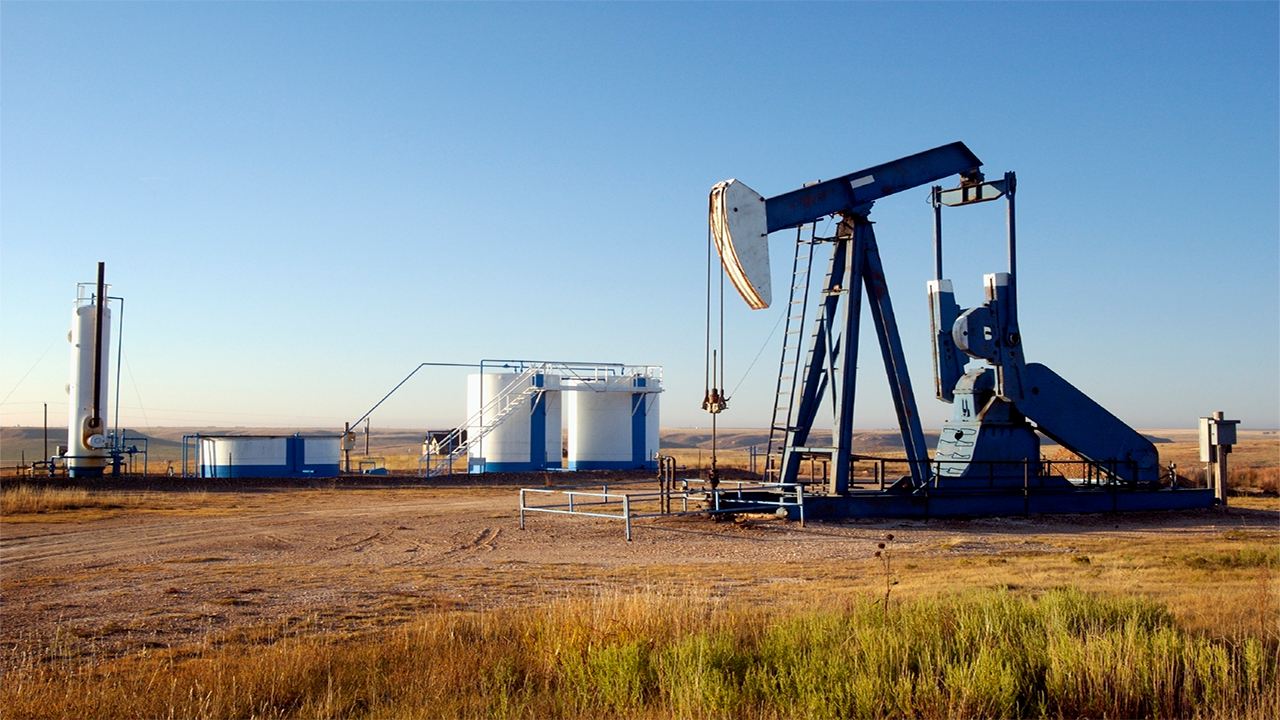- Equities Market Rebounds on Renewed Optimism
It was a positive week at the stock market last week as the Nigerian Stock Exchange (NSE) All-Share Index (ASI) rose by 0.90 per cent to close at 25,238.10. Similarly, market capitalisation appreciated with the same margin to be at N8.734 trillion. The growth compares with a decline of 0.94 per cent recorded the preceding week.
The market had shed value two weeks ago amidst corporate results declared by some companies for the year ended December 31, 2016. Zenith Bank Plc, Transcorp Hotels Plc, Dangote Cement Plc and Nestle Nigeria Plc reported their audited results, announcing various dividends the previous week. Despite the dividends, the market had closed in the bears’ territory.
However, the trend changed last week as more companies announced their results, recommending higher dividends. This development, market analyst said raised investors’ optimism for more positive results. Consequently, the NSE ASI closed 0.90 per cent higher.
Daily Market Performance
The stock market closed last week on a bearish note despite attractive yields declared by some companies in their financial results for the year ended December 31, 2016. Zenith Bank Plc, Transcorp Hotels Plc, and Dangote Cement Plc declared improved results that led to recommendation of dividends by their boards. Although Nestle Nigeria Plc posted a decline in profit for the year, it still recommended a dividend for the shareholders.
However, many investors were not moved by the development and maintained their weak appetite towards the equities market. As a result, the market closed weaker. Out of the five days the market declined in three days and appreciated in two days.
Specifically, the Nigerian Stock Exchange (NSE) All-Share Index pared by 0.94 per cent to close at 25,012.08, while market capitalisation ended at N8.656 trillion.
However, all other Indices finished higher during the week with the exception of the NSE Premium and NSE Industrial Goods Indices that depreciated by 4.47 per cent and 2.33 per cent respectively while the ASEM Index closed flat.
Daily Market performance
The equity market started the week on a negative note with the NSE ASI depreciated by 1.72 per cent to close at 24,581.99, following depreciation recorded in the share prices of Access Bank, Dangote Cement, Unilever, Guinness and FBN Holdings among others.
The year-to-date (YTD) decline worsened to 8.5 per cent on Monday. Performance across sectors was mixed as three indices advanced while two declined. The NSE Consumer Goods Idex appreciated the most, rising by 3.7 per cent as Nestle Nigeria and Nigerian Breweries rising by 10 per cent and 0.9 per cent respectively to bolster the index.
In the same vein, the NSE Oil & Gas Index gained 3.3 per cent on account of appreciation by Forte Oil Plc(+5.1 per cent) while the NSE Insurance Index grew by 0.4 per cent.
On the negative side, the NSE Industrial Goods Index fell by 5.9 per cent as investors off-load Dangote Cement, which shed 7.0 per cent. The stock had depreciated 11.7 since its 2016 financial results were published the previous week. The NSE Banking Index slid 0.3 per cent despite an impressive 2016 full year results submitted on Monday. The equity fell by 3.7 per cent.
The bulls surfaced on Tuesday to take over control of the market lifted by Dangote Cement Plc. The NSE ASI rose by 2.28 per cent. In all, the bullish trend was driven by appreciation in the share price of Transcorp (+7.14 per cent), Guinness (+4.97 per cent) Dangote Cement (+4.92 per cent), Paintcom (+4.84 per cent) and Dangote Flour(+4.11).
The value of equities traded increased by 94.59 per cent to N2.595 billion, while volume of trading also rose by 78.7 per cent to 215 million in 3,689 deals.
The five stocks that drove activities in volume terms included: Access Bank (43.7 million), Zenith Bank (42.6 million), UBA (18.9 million), FBN Holdings (18.2 million), UCAP (13.4 million) and NEM (10.4 million).
After recording a positive performance on Tuesday, the market was depressed on Wednesday by a number of highly capitalised stocks. Consequently, the NSE ASI fell by 0.57 per cent to close at 24,986.02. The decline recorded in the share prices of GTBank, Dangote Cement, Lafarge Africa, FBN Holdings and Zenith Bank were mainly responsible for the loss.
In terms of sectoral performance, the NSE Consumer Goods Index was the only gainer, improving by 3.0 per cent following price appreciation in Nigerian Breweries(+5.0 per cent) and Guinness (+3.9 per cent).
The NSE Industrial Goods Index was the biggest decliner, falling 3.5 per cent as sell offs in Lafarge Africa Plc (-5.0 per cent) and Dangote Cement Plc (-2.8 per cent) constituted a drag on the index. Similarly, the NSE Oil & Gas Index shed 2.5 per cent following sell pressure on Seplat (-5.0 per cent) and Forte (-5.0 per cent) just as the NSE Banking Index lost 0.1 per cent.
Again, the bulls returned on Thursday to take control of the market, making the NSE ASI to close 0.74 per cent higher. There were 16 gainers and nine losers on Thursday. Nestle Nigeria and Dangote Cement Plc led the gainers with 5.0 apeice to close at N725.55 and N159.75.
Medview Airlines Plc followed with 4.9 per cent, while NEM Insurance Plc appreciated by (4.82 per cent. Honeywell Flour Mills chalked up 4.3 per cent.
On the negative side, Nigerian Breweries Plc led the price losers with 5.00 per cent to close at N130.36. Also, Guaranty Trust Bank, which released its 2016 the previous day, fell by 4.8 per cent.
GTBank had on Wednesday reported gross earnings of N414.62 billion for the year ended December 31, 2016, showing an increase of 37 per cent from N301.85 billion in 2015. Profit before tax stood at N165.14billion, representing a growth of 37 per cent over N120.69billion recorded in 2015, while profit after tax rose from N99.436 billion in 2015 to N132 billion.
The bank grew its loan book grew by 16 per cent from N1.373trillion in 2015 to N1.590 trillion in 2016, just as total deposits grew by 29 per cent to N2.111trillion from N1.637trillion in 2015.
Based on the results, the bank has proposed final dividend of 175 kobo, bringing the total dividend to 200 kobo per share. The bank has already paid an interim dividend of 25 kobo.
Performance across sectors was mixed with indices appreciated while three declined. The NSE Industrial Goods Index advanced the most, growing by 2.4 per cent boosted by Dangote Cement(+5.0 per cent). Similarly, the NSE Insurance Index appreciated 0.2 per cent. Conversely, the NSE Consumer Goods Index led sector decliners, shedding 2.0 per cent on account of profit taking in Nigerian Breweries ( -5.0 per cent). Also, the NSE Banking and Oil & Gas Indices went down by 1.3 per cent and 0.3 per cent respectively.
The bulls extended their hold on the market for the second day to close on a positive note. Specifically, the NSE ASI appreciated by 0.27 per cent to close at 25,238.01. Gains by Unilever, Forte Oil, Dangote Cement, Nestle, and Zenith Bank propelled the growth recorded for the last day of the week.
The total value of stocks traded on Friday was N2.31 billion, up by 5.81 per cent from N2.19 billion recorded the previous day. The total volume of stocks traded was 245.38 million 3,260 deals. The three actively traded sectors were: Financial Services (229.72 million), Consumer Goods (5.58 million), and Conglomerates (4.26 million), while three most actively traded stocks were: Zenith Bank (87.18mn), Diamond Bank (38.58mn) and FBN Holdings (30.10mn).
Market Turnover
In all, investors traded 1.024 billion shares worth N12.464 billion in 16,400 deals last week, compared with 1.387 billion shares valued at N13.726 billion that exchanged hands the previous week in 5,422 deals.
As usual, the Financial Services Industry remained the most activity leading with 850.758 million shares valued at N7.083 billion traded in 10,358 deals. The Consumer Goods Industry followed with 78.421 million shares worth N3.9 billion in 2,545 deals, while the third place was occupied by Conglomerates Industry with a turnover of 46.196 million shares worth N70.668 million in 536 deals.
Also traded during the week were a total of 1,020 units of Exchange Traded Products (ETPs) valued at N51,316.00 executed in four deals.
A total of 6,686 units of Federal Government Bonds valued at N5.583 million were traded this week in 7 deals, compared with a total of 375 units valued at N447,055.02 transacted the previous week in five deals.
Price Gainers and Losers
Meanwhile, 24 equities appreciated last week, while 31 depreciated. Nestle Nigeria led the price gainers chalking up 16.9 per cent, trailed by Unilever Nigeria Plc with 11.4 per cent. N.E.M Insurance Plc appreciated by 9.6 per cent, just as Honeywell Flour Mills Plc ended 5.0 per cent higher.
Other top price gainers included: Continental Reinsurance Plc (4.9 per cent); Paints and Coatings Manufacturers Plc(4.8 per cent); Newrest ASL (4.6 per cent);
Transcorp Plc (4.3 per cent); Champion Breweries Plc (4.2 per cent) and Julius Berger Nigeria Plc (4.1 per cent).
Conversely, African Prudential Registrars Plc led the price losers with 15.5 per cent. United Capital Plc trailed with 15.1 per cent. Nigerian Aviation Handling Company Plc and Seven-Up Bottling Company Plc shed 12 per cent and 9.4 per cent in that order.
Livestock Feeds Plc went down by 9.4 per cent, just as Eterna Plc and Unity Bank Plc depreciated by 9.4 per cent and 8.2 per cent respectively. Other price losers were Transcorp Hotels Plc (8.0 per cent); Ashaka Cement Plc (7.9 per cent) and Lafarge Africa Plc (6.9 per cent).

 Naira4 weeks ago
Naira4 weeks ago
 Naira4 weeks ago
Naira4 weeks ago


 Naira4 weeks ago
Naira4 weeks ago




 Naira3 weeks ago
Naira3 weeks ago
 Commodities4 weeks ago
Commodities4 weeks ago


 News4 weeks ago
News4 weeks ago


 Banking Sector4 weeks ago
Banking Sector4 weeks ago
 Travel4 weeks ago
Travel4 weeks ago
























